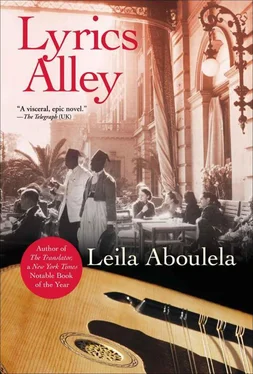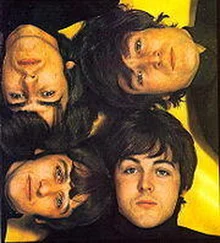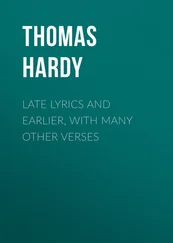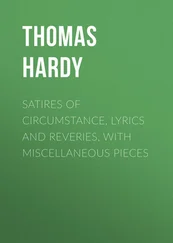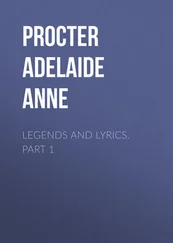Leila Aboulela - Lyrics Alley
Здесь есть возможность читать онлайн «Leila Aboulela - Lyrics Alley» весь текст электронной книги совершенно бесплатно (целиком полную версию без сокращений). В некоторых случаях можно слушать аудио, скачать через торрент в формате fb2 и присутствует краткое содержание. Год выпуска: 2011, Издательство: Grove Press, Жанр: Современная проза, на английском языке. Описание произведения, (предисловие) а так же отзывы посетителей доступны на портале библиотеки ЛибКат.
- Название:Lyrics Alley
- Автор:
- Издательство:Grove Press
- Жанр:
- Год:2011
- ISBN:нет данных
- Рейтинг книги:5 / 5. Голосов: 1
-
Избранное:Добавить в избранное
- Отзывы:
-
Ваша оценка:
- 100
- 1
- 2
- 3
- 4
- 5
Lyrics Alley: краткое содержание, описание и аннотация
Предлагаем к чтению аннотацию, описание, краткое содержание или предисловие (зависит от того, что написал сам автор книги «Lyrics Alley»). Если вы не нашли необходимую информацию о книге — напишите в комментариях, мы постараемся отыскать её.
Lyrics Alley — читать онлайн бесплатно полную книгу (весь текст) целиком
Ниже представлен текст книги, разбитый по страницам. Система сохранения места последней прочитанной страницы, позволяет с удобством читать онлайн бесплатно книгу «Lyrics Alley», без необходимости каждый раз заново искать на чём Вы остановились. Поставьте закладку, и сможете в любой момент перейти на страницу, на которой закончили чтение.
Интервал:
Закладка:
In her last letter she had written, ‘If you won’t fulfil my wishes, then our marriage cannot continue.’
But he had no intention of divorcing her. Why should he give up something he possessed and cherished? She would eventually have her fill of Cairo and return to her senses. Let her indulge herself in her mother’s company; let her pique and petulance play itself out. He would be waiting. Certain women in Khartoum were already making advances at him. If he wanted a wife or a mistress, all he had to do was point his finger. But he was waiting for Nabilah. He would forgive her everything if she came back: that she had thrown the necklace in his face, that she had deprived him of his children and that she had spoken to him in the bitterest and most callous of ways. Only one thing stuck in his throat, only one thing would be hard to overlook. She had shared his life and not understood him. Not understood that he could not leave Umdurman, not understood that Waheeba, for all her faults, was Nur’s mother and always would be. Umdurman was where Mahmoud belonged. Here on this bed was where he would one day die, and down these alleys his funeral procession would proceed. And every shop owner in the souq, every tradesman pulling his cart, the beggars and the neighbours would know who Mahmoud Abuzeid was, where he came from and what he had done or not done.
Even if Nabilah came back, he brooded, her dismissiveness might continue to rankle, her desire to wrap his Sudanese identity and limit it with spatial classification. From early on she had mistaken his spirited love of modernity for a wholehearted conversion, and she had not taken account of the vicissitudes of Fate. But perhaps he expected too much from her. She was young, after all, and no one should be expected to predict the future. Indirectly, with cunning, Nur’s accident had dealt a blow to his second marriage. The ingredients of his life, which he had kept in balance, irrevocably altered. The modern-to-traditional ratio shifted; Nabilah’s dining table versus Waheeba’s hoash, Cairo’s avenues versus the alleys of Umdurman. He had prided himself in harnessing both, in gliding gracefully between both worlds, but now he was faltering; now he was unsure.
‘Move to Cairo,’ Nabilah had suggested. ‘Being away from the misery and backwardness would be better for us.’
But this misery was his misery, and this backwardness his duty. She had no idea, nor would she be interested in the fact that he sat nearly every day on one committee or the other: he was on a committee to build the first football stadium in Umdurman, on another to build a charitable hospital and on the board of trustees for the premier woman’s college, established by Sheikh Babiker Badri. He did not find these positions tedious, or a waste of his time. On the contrary, they filled him with the satisfaction that he was contributing to his country’s progress.
A more intimate gratification was the personal petitions he received, and on which he threw his energy and utilised his connections to carry out. These days it was Nur’s progress as a poet that was bringing in the requests. Mahmoud regarded Nur’s poetry as a hobby, simply because it did not generate any significant income. He had opposed the early public broadcast of Travel is the Cause because he found it embarrassing that his son, who carried his name, should make such a gratuitous exposure of his tragedy. In addition, Mahmoud shared his generation’s contempt for popular music and viewed it with suspicion, disdaining the milieu of musicians, dancers and singers whom he and the rest of his class associated with debauchery and loose morals.
‘But let the poor boy comfort and occupy himself,’ his friends had advised him.
And with time, Mahmoud’s reservations thawed. He still regarded Nur’s lyrics as silly jingles, but he smiled when his friends and acquaintances mentioned that they had heard Nur’s songs on the radio. It was clear, too, that the boy’s spirits were lifted with this new pursuit. And anything was welcome as long as it kept the wretched boy amused and out of the pit of despair. It became Mahmoud’s duty to help those who helped his son (after, of course, checking up on their morals and reputation). Hamza Al-Naggar’s eldest brother was now a new accountant in the Abuzeid office, and today Mahmoud would talk to Nigel Harrison about employment prospects for Hamza’s younger brother at Barclays Bank. Letters of recommendation written by Mahmoud had helped secure a position for the father of one of Nur’s new poet friends, and for Hamza’s accordion player.
And then, of course, there was young Zaki, Nur’s right arm, whose further education Mahmoud would foster and finance. As for Ustaz Badr, whose case Nur kept putting forward despite the episode of the robbery, Mahmoud was finally going to lease him a small flat with a nominal rent. Yes, the new building was finally up, the first tall building in downtown Khartoum. Mahmoud felt a surge of pride. There was even a photograph of it in a new monogram about Sudan published by Her Majesty’s Stationery Office in London. It was good to build something that was strong and tangible, something that would last. It was an achievement to be proud of. And he would be generous, yes, he would. Let Ustaz Badr have one of the flats. Not every transaction must bring in a profit.
‘Thank you Father,’ Nur would say, and that was what Mahmoud wanted most of all, that smile and the shining eyes.
He checked his watch and found that he still had time to walk over to Waheeba’s hoash and have his coffee. He found Fatma sitting with her aunt while Nur was indoors being given his morning bath.
‘He was up late last night,’ Waheeba explained. ‘He had about thirty guests! Till past midnight they stayed with him. I sent out the dinner and fell asleep.’
‘Yesterday’s was such a jubilant gathering,’ said Fatma. ‘Patriotic poems and songs so loud that total strangers walked in from the alley!’
‘I don’t understand why they’re celebrating now, when the English are staying on another three years.’ Waheeba shifted on her bed.
Mahmoud smiled. ‘It’s a transition period. Change can’t happen overnight.’
‘We’ve won self-determination,’ explained Fatma to her mother-in-law, ‘much earlier than anyone ever expected.’
Batool placed the tray with the jabana, cup and a glass of water on a small table in front of him.
‘You are always here,’ Mahmoud joked with her. ‘Don’t you ever go to your husband?’
‘I’m staying here, Uncle, until after the wedding.’ She smiled as she poured out the coffee.
‘Of course — we can’t do without her these days,’ murmured Waheeba.
‘We are very busy,’ Fatma reiterated.
She looked happier than she had for a long time. Mahmoud knew that Nassir was not the best of husbands and that Fatma’s patience was often strained. However, Soraya’s upcoming wedding seemed to have plunged her into an array of pleasurable preparations and responsibilities and all her maternal feelings for her younger sister were now concentrated on the details and success of the next few weeks.
‘Our bride,’ she now said, ‘wants to do something new, something extra and special.’
Mahmoud smiled. Soraya was now reverentially referred to as ‘the bride’ or ‘our bride’. She was secluded, so that the sun would not darken her skin, and she was fed on copious amounts of milk and honey to fatten her up.
Fatma continued, ‘She wants, on one of the wedding evenings, to wear a white dress like brides do in Egypt.’
Waheeba grunted. ‘Oh, these new-fangled ideas!’
‘Just for one day. .’ Fatma squeezed her mother-in-law’s arm. It was obvious she was in favour of this idea herself. ‘Soraya would wear a European bridal dress and her bridegroom would wear a dinner suit — a white one, with a bow tie. And she would have bridesmaids, little girls Zeinab’s age, all wearing the same dress and walking in front of her in a procession, holding candles. And, Uncle, this is what I wanted to ask you for: could we, please, have a belly dancer from Cairo?’
Читать дальшеИнтервал:
Закладка:
Похожие книги на «Lyrics Alley»
Представляем Вашему вниманию похожие книги на «Lyrics Alley» списком для выбора. Мы отобрали схожую по названию и смыслу литературу в надежде предоставить читателям больше вариантов отыскать новые, интересные, ещё непрочитанные произведения.
Обсуждение, отзывы о книге «Lyrics Alley» и просто собственные мнения читателей. Оставьте ваши комментарии, напишите, что Вы думаете о произведении, его смысле или главных героях. Укажите что конкретно понравилось, а что нет, и почему Вы так считаете.
